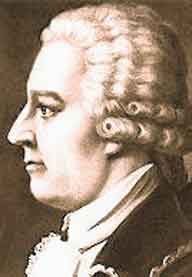

Composer, probably born in Silesia, although it has been claimed he was born in Nuremberg. He certainly moved to Paris in 1760 or 1761 and was employed in the service of the Duke of Conti. During the following years he published his instrumentral music at his own expense. His comic opera La garde-chasse et la braconnier met with no success in 1767. Schobert came into contact with the Mozart family when they visited Paris in 1764. Leopold Mozart reported that his children played Schobert's works with ease, and that it made Schobert furious. Leopold called him 'Low and not at all what he should be'. The young Mozart was apparently greatly impressed (as a 7-year old) by the D Major sonata of Op. 3, and imitated it and others of Schobert in his Parisian and English sonatas; he based the second movement of his second piano concerto (K.39) on Schobert's sonata op. 17 no. 2. Mozart furthermore taught his Paris students Schobert's sonatas in 1778. Schobert died in Paris, along with his wife and one of his children, after mistakenly eating poisonous mushrooms.
Schobert's music is remarkable for its forward-looking formal and stylistic features, notably in the keyboard music with accompanying instruments.